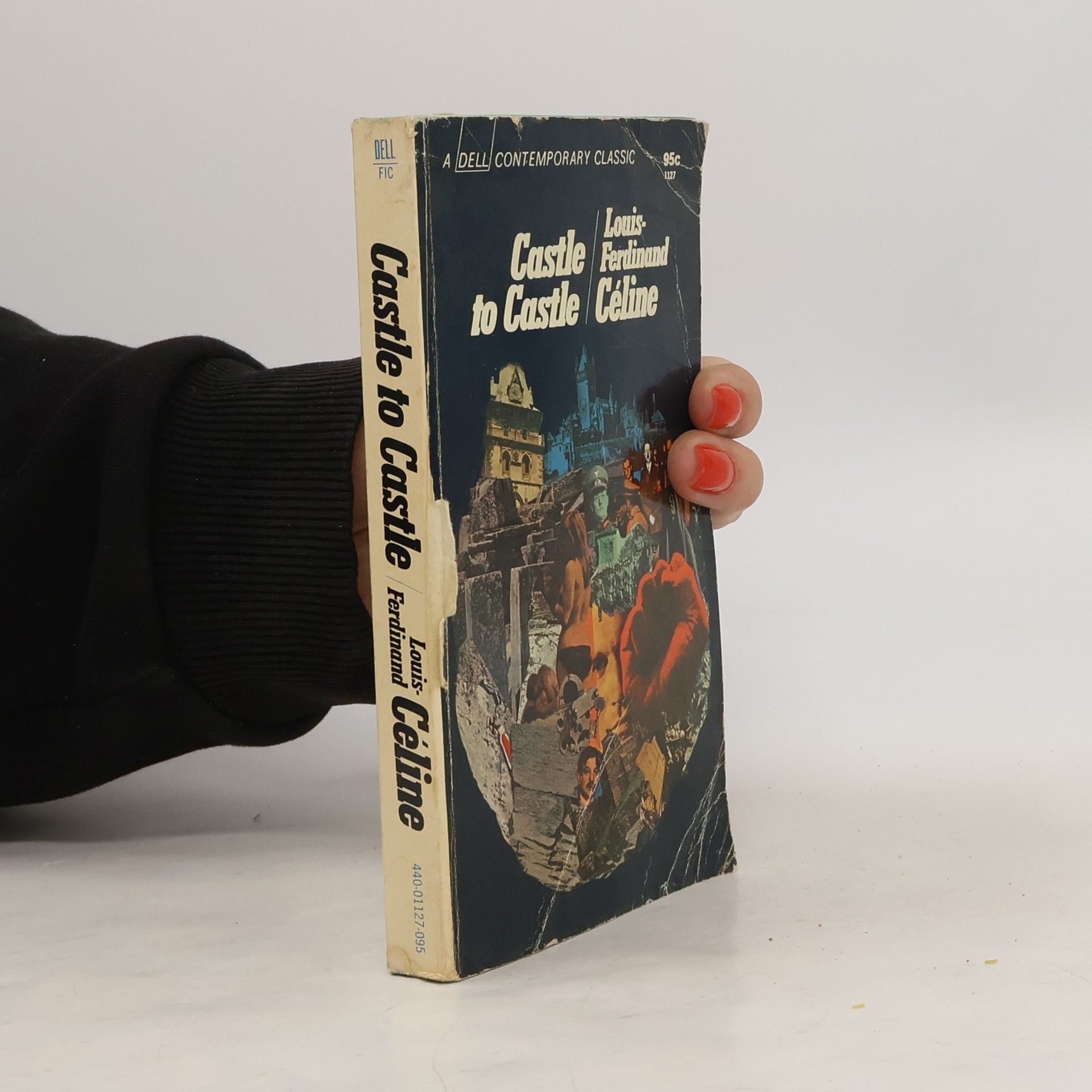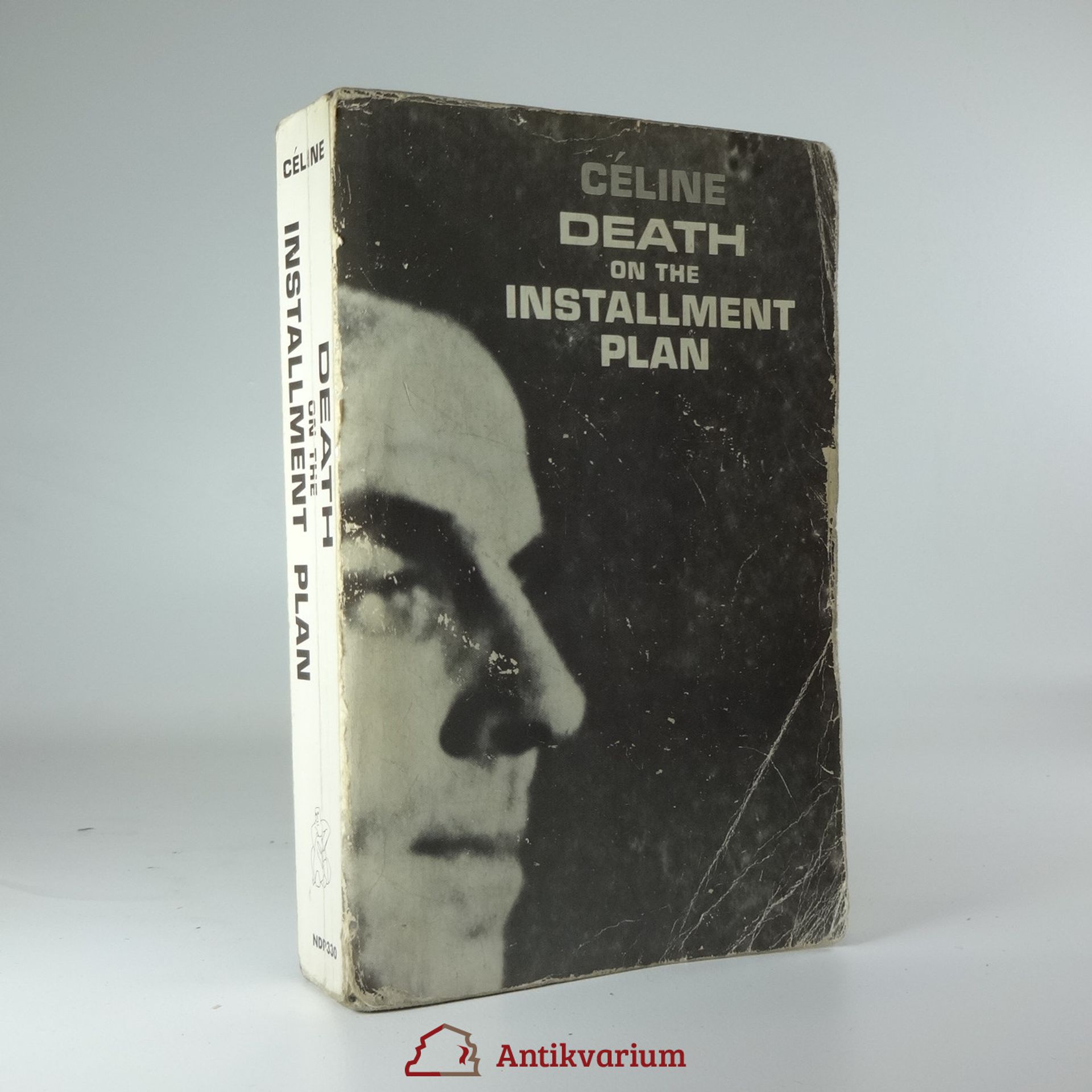Louis-Ferdinand Céline Book order (chronological)
- Louis-Ferdinand Céline







Translated now for the first time into English, War is a powerfully vivid, unflinching, darkly comical exploration of the physical and mental trauma of the Western Front, which provides a fascinating missing link in the writing career of one of the greatest - and most controversial - authors of the twentieth century.
Der junge Ferdinand wächst in einer engen Pariser Passage heran, in der die Mutter ein kleines Modegeschäft führt. Der Vater ist ein cholerischer Versicherungsangestellter, seinen Sohn hält er für einen Versager. Céline porträtiert Ferdinands Eltern und die anderen Händler als die typischen, stets zu kurz gekommenen Kleinbürger mit ihrem verbissenen Groll auf alle anderen, die da oben wie die da unten. Ferdinand bricht verschiedene Lehren ab, geht nach England, kann sich auch dort keine Existenz aufbauen. Er kehrt nach Frankreich zurück und wird schließlich Arzt in einem Pariser Armenviertel. An seinem Beruf, den Patienten, an der Gesellschaft insgesamt lässt er kein gutes Haar. Céline denunziert die Niedrigkeit, mit der alle, die doch selber um ihre Existenz ringen, sich gegenseitig verfolgen. Wie schon mit «Reise ans Ende der Nacht» erweitert er mit «Tod auf Raten» die französische Literatursprache um sämtliche Schattierungen von Mündlichkeit, er zieht alle Register, vom Poetischen bis zum Unflat – seinerzeit ein Schock. Der Roman gilt neben «Reise ans Ende der Nacht» als einer der wirkmächtigsten Romane des 20. Jahrhunderts. Seine zynische Härte, verzweifelte Sehnsucht und grimmige Komik, in eine Prosa voll rhythmischem Schwung gefasst, machten ihn weltberühmt. Hinrich Schmidt-Henkel hat das Buch mit neuem Titel (bislang «Tod auf Kredit») neu übersetzt, die Auslassungen früherer Versionen ergänzt und ein Nachwort verfasst.
Mais t’es antisémite ma vache ! C’est vilain ! C’est un préjugé ! – J’ai rien de spécial contre les Juifs en tant que juifs, je veux dire simplement truands comme tout le monde, bipèdes à la quête de leur soupe... Ils me gênent pas du tout. Un Juif ça vaut peut-être un Breton, sur le tas, à égalité, un Auvergnat, un franc-canaque, un « enfant de Marie »... C’est possible... Mais c’est contre le racisme juif que je me révolte, que je suis méchant, que je bouille, ça jusqu’au tréfonds de mon benouze !... Je vocifère ! Je tonitrue ! Ils hurlent bien eux aux racistes ! Ils arrêtent jamais !
Plus de juifs que jamais dans les rues, plus de juifs que jamais dans la presse, plus de juifs que jamais au Barreau, plus de juifs que jamais en Sorbonne, plus de juifs que jamais en MEdecine, plus de juifs que jamais au ThEAtre, A l'OpEra, au FranCais, dans l'industrie, dans les Banques. Paris, la France plus que jamais, livrEs aux maCons et aux juifs plus insolents que jamais. Plus de Loges que jamais en coulisse, et plus actives que jamais. Tout Ca plus dEcidE que jamais A ne jamais cEder un pouce de ses Fermes, de ses PrivilEges de traite des blancs par guerre et paix jusqu'au dernier soubresaut du dernier paumE d'indigEne. Et les FranCais sont bien contents, parfaitement d'accord, enthousiastes. Une telle connerie dEpasse l'homme. Une hEbEtude si fantastique dEmasque un instinct de mort, une pesanteur au charnier, une perversion mutilante que rien ne saurait expliquer sinon que les temps sont venus, que le Diable nous apprEhende, que le Destin s'accomplit.
1944 ősze Siegmaringenben… Az Utazás mellett a legjelentősebb Céline-regénynek tartott Kastélyról kastélyra végletesen groteszk – egyszerre humoros és tragikus – képekben mutatja be az összeomló rezsim utolsó pillanatait. A történet középpontjában pedig maga Céline, táncosnő felesége, Lili és Bébert, a macska.
Féerie pro jindy II
- 308 pages
- 11 hours of reading
Druhý svazek Célinovy Féerie pro jindy je považován za bezdějový, jak tvrdí kritici. Popisuje spojenecké bombardování Paříže v noci z 21. na 22. dubna 1944, které Céline sleduje ze svého domu v Girardonově ulici. V této roli kronikáře, nebo spíše zapisovatele, zachycuje události v časovém sledu. Jeho pozorování výbuchů Paříže připomíná Plinia Staršího během erupce Vesuvu. Céline zmiňuje metodu fantaskopie, která umocňuje jeho popis. Vnímá zkázu jako převrácený svět, přičemž perspektiva pilotů nad městem přidává další rozměr. Opakující se výjevy jsou vždy mírně posunuty, což vytváří fantaskopický děj. Každý obyvatel domu má svůj příběh, včetně detailů jako jsou almara, kredenc a Célinovy rukopisy. Zapisovatel orchestruje jazyk na pozadí orchestrální skladby, jejímž dirigentem je Julek. Po zničení se nad rozbřeskem objevuje tvář herce Norberta z éry němého filmu. Tento svazek, zdánlivě bez děje, má jedinou hlavní postavu: hudbu Célinova stylu. Slova fungují jako stehy v goblénu, kde opakování a obměna vyžadují proměnu odstínu. Rytmus a gradace jsou podřízeny úkolu zapisovatele, který se soustředí na přesnost a vážnost v líčení toho, co vidí.
Docteur, vite ! ... vous devez vous douter...toute cette gare ici n'est qu'un piege...tous ces gens des trains sont a liquider...ils sont de trop...vous aussi vous etes de trop...moi aussi. - Comment savez-vous ? - Docteur je vous expliquerai plus tard...maintenant il faut vous attendre...vite ! ...ça sera fait cette nuit... - Pourquoi ? - Parce qu'ils n'ont plus de places dans les camps...et plus de nourriture et que dehors ça se sait.


